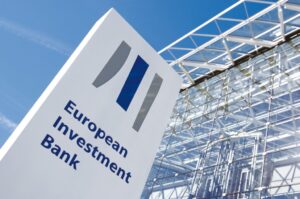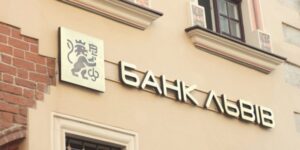
Naftogaz of Ukraine has attracted an additional €50 million from the European Investment Bank for gas imports, the company said
“Another important step to get through the winter stably. Naftogaz has attracted an additional €50 million in financing from the European Investment Bank,” Naftogaz said in a statement on Telegram on Thursday evening.
According to the statement, these funds will be used to import gas and support the energy system during peak loads, when cold weather and shelling create the greatest pressure.
It is noted that the loan was made possible thanks to the support of the European Commission.
As indicated by Naftogaz, this financing complements the EUR 300 million EIB loan and EUR 127 million in EU grant support with the participation of the Norwegian government that have already been raised.
“It is also important to note that Naftogaz has committed to reinvesting the equivalent of this amount in renewable energy projects,” the company said.

The European Investment Bank (EIB) has approved a project to provide ProCredit Bank (Kyiv) with a partial portfolio guarantee of EUR7 million, which will enable the financial institution to issue up to EUR35 million in loans to micro, small, and medium-sized enterprises (MSMEs).
As stated on the EIB website, the guarantee is part of the EU4Business Guarantee Facility II program, which aims to improve lending conditions for businesses, in particular by reducing collateral requirements and lowering interest rates, thereby expanding access to finance for MSMEs in Ukraine.
As reported, EU4Business Guarantee Facility II is a program under which the EIB provides Ukrainian banks with partial portfolio guarantees to expand lending to MSMEs. Its goal is to simplify access to financing for these enterprises by improving loan conditions. The total volume of the program is estimated at EUR 300 million, of which EUR 40 million is EIB guarantees. The project was approved on May 5, 2025.
ProCredit Bank is part of the ProCredit Holding AG (Germany) banking group, which owns 100% of its shares. According to the National Bank, as of October 1 this year, it ranked 16th (UAH 44.68 billion) among 60 banks in Ukraine in terms of total assets.

The European Investment Bank is considering a EUR70 million project to supply Mykolaiv with drinking water.
“The sub-project aims to restore Mykolaiv’s access to drinking water after serious damage to its water supply infrastructure as a result of the destruction of the Kakhovka hydroelectric power plant by Russian troops in 2023. The implementation of the sub-project will bring significant environmental and social benefits, including improved water quality, reduced pollution, and increased energy efficiency,” the project description states.
In addition, temporary jobs will be created during the construction of infrastructure elements, the document notes.
According to information on the bank’s website, the beneficiaries of the financing are state bodies and companies. The project is part of the Ukraine Municipal Infrastructure Development Program, launched in 2015 with financing in the form of a EUR400 million framework loan.
As reported, in September 2024, the government reached preliminary agreements with the EIB to attract donor funds for the construction of a water intake from the Southern Bug River and a main water pipeline in Mykolaiv.
The EIB has been operating in Ukraine since 2007. Following Russia’s full-scale invasion in 2022, the Bank stepped up its financial support to help strengthen the country’s resilience and rebuild its infrastructure. Since then, the EIB has provided Ukraine with EUR 4 billion in financing.

The European Investment Bank (EIB) has allocated EUR46.2 million to support Ukrainian municipalities in restoring vital public infrastructure and providing essential services, backed by an EU guarantee under the European Commission’s investment program for Ukraine.
“This funding is directed where it is most needed: to restore and support essential public services for Ukrainian citizens. This support comes at a critical moment, as Russia intensifies its attacks on civilian infrastructure. The European Commission intends to continue its close cooperation with the European Investment Bank, using the Ukraine Assistance Program to provide vital support to Ukraine and its people,” said Valdis Dombrovskis, European Commissioner for Economy and Productivity, Implementation, and Simplification.
In particular, EUR 28 million has been allocated under Ukraine’s Urban Public Transport Projects I and II, which support the renewal of urban transport fleets with modern, energy-efficient vehicles. Thanks to this funding, Kyiv, Lviv, and Mykolaiv will receive new buses; Zaporizhzhia, Ternopil, and Kremenchuk will receive trolleybuses; Dnipro and Kamyanske will receive trams; and Uzhhorod will receive electric buses.
As part of Ukraine’s municipal infrastructure development program, the EIB has allocated EUR 13.3 million to modernize vital local services. The funding supports the reconstruction of public lighting systems in Dnipro and Kamyanske, the modernization of water supply and sewage systems in Lutsk, the improvement of energy efficiency in schools and kindergartens in Sumy, and the improvement of solid waste management in Lviv for the reclamation of the Hrybovychi landfill.
An additional EUR 4.9 million has been allocated under the Ukraine Public Buildings Energy Efficiency Program to support projects in the cities of Rivne, Korets, and Kovel. The sub-projects focus on the energy-efficient modernization of schools, kindergartens, and medical facilities, including insulation, window replacement, and heating system upgrades. This funding is complemented by an E5P investment grant for hospital buildings, such as the Kovel City District Territorial Medical Association, which helps improve energy efficiency, comfort, and quality of service in healthcare facilities.
The European Investment Bank has been operating in Ukraine since 2007. Following Russia’s full-scale invasion in 2022, the Bank stepped up its financial support to help strengthen the country’s resilience and rebuild its infrastructure. Since then, the EIB has provided EUR4 billion in financing to Ukraine.

Bank Lviv (Lviv) has signed agreements with the European Investment Bank (EIB), the European Investment Fund (EIF), the Belgian Development Organization for Developing Countries (BIO) and the Bank of the Council of Europe (CoE) totaling EUR 103 million, which will allow it to expand financing to the private sector through credit lines, guarantees and support for micro-entrepreneurs.
“Within the framework of international partnerships, Lviv Bank has signed four strategic agreements with international financial institutions – for a total of more than EUR100 million to support Ukrainian private companies, SMEs and entrepreneurs!” Volodymyr Kuzio, deputy chairman of the bank’s board, said on Facebook on Tuesday.
He noted that Lviv Bank has attracted EUR 60 million from the EIB in the form of a multi-currency credit line, including local currency financing, to improve access to finance for the private sector.
Another EUR 35 million was provided by the EIF in the form of portfolio guarantees, which will reduce collateral requirements for Ukrainian private sector clients to 70% and at the same time strengthen the capital of Bank Lviv.
In addition, the bank will receive EUR 5 million from the Belgian development organization BIO, the first transaction in the institution’s history in Ukraine.
Another EUR 3 million is being provided by the Council of Europe Development Bank to support micro-entrepreneurs across the country.
According to the National Bank of Ukraine, as of April, Lviv Bank ranked 23rd in terms of total assets among 60 operating banks with UAH 14.8 billion, or 0.4% of the banking sector.

The European Investment Bank (EIB) and state-owned Ukreximbank (Kyiv) have signed a Letter of Intent to sign a financial agreement under the Economic Resilience Support Program II project for a total amount of EUR 100 million to finance small and medium-sized enterprises (SMEs), particularly in the energy efficiency and green technology sectors.
According to the bank’s website on Monday, the document was signed on July 10 at the International Conference on the Recovery of Ukraine (URC2025). The agreement is expected to give Ukrainian businesses access to long-term financing on favorable terms.
“Thanks to access to long-term financing, companies will be able to implement environmentally friendly projects, modernize production, and confidently integrate into the EU economic space,” said Viktor Ponomarenko, chairman of the board of Ukreximbank, as quoted in the statement.
According to the press release, the program aims to improve access for small and medium-sized businesses, as well as mid-cap companies, to sources of financing for investment projects and working capital needs. The initiative is expected to contribute to Ukraine’s sustainable economic development, its integration into the EU economy, and the entry of Ukrainian companies into international markets.
Within the framework of the EIB’s Green Initiative, Ukreximbank’s clients will be able to implement projects in the fields of renewable energy, energy efficiency, and the introduction of clean innovative technologies.
According to the NBU, as of April 2025, Ukreximbank ranked third in terms of total assets among 60 operating banks, with UAH 311.8 billion.